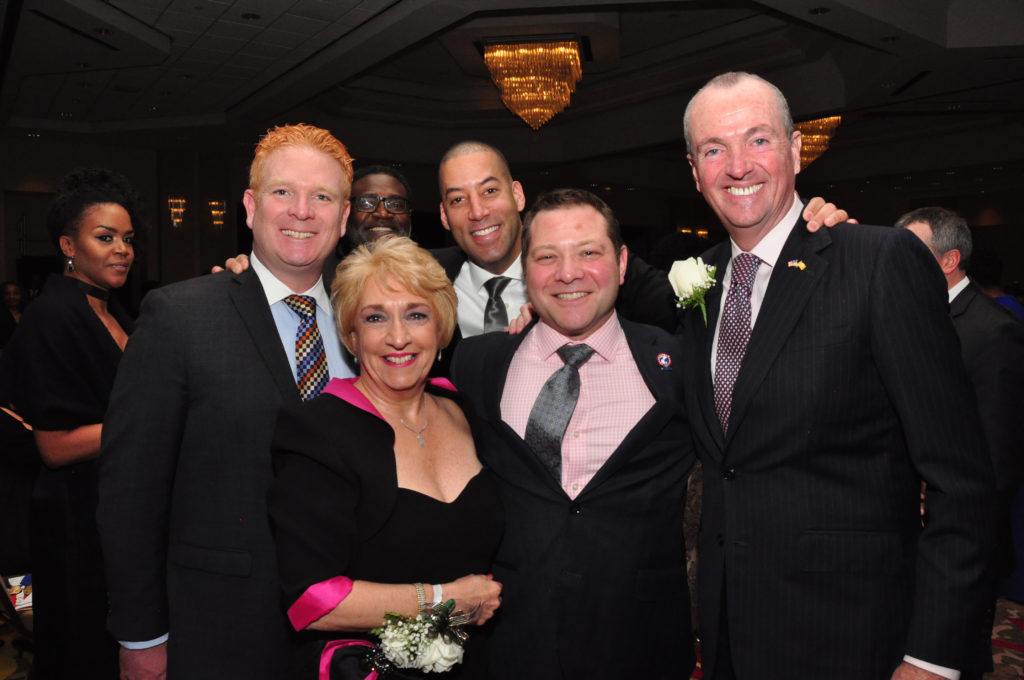Major funding for NJ Spotlight News provided by Horizon Blue Cross Blue Shield of New Jersey, New Jersey Education Association, New Jersey Manufacturers Insurance Group, Orsted, PSEG Foundation, the Robert Wood Johnson Foundation, and RWJ Barnabas Health.
This is an excerpt from the “About” page
of NJ Spotlight, so props to the platform for publishing an analysis today by journalist Jeff Pillets called “NJEA’s Power Goes Beyond Money
.” It does indeed and Pillets has the receipts.
And that’s without reference to Gov. Phil Murphy’s obeisance to union leaders. Upon inauguration into the Governor’s Office in 2018, Murphy scurried to check off every item on the union’s wish list, from eliminating PARCC testing, to demolishing the link between student outcomes and teacher evaluations, to declaring a moratorium on charter stance approvals (despite these schools’ popularity among low-income families of color), to hiring NJEA-compliant Education Commissioners, and lowering state standards to gift NJEA with boasting rights to false statements like “NJ has the best schools in America.”
Hey, he even hired an NJEA operative as his Deputy Chief of Staff.
And you get what you pay for, at least most of the time, and NJEA leaders know they will get what they pay for all of the time with Phil Murphy. Here are highlights from Pillets’ analysis describing the union’s power at the polls:
- The $15 million NJEA has spent to re-elect Gov. Phil Murphy “dwarfs contributions made by any other group in a state long dominated by special-interest politics.”
- Since mid-September, local and regional NJEA units in every county have staged phones banks, mass Zoom meetings, town halls, door-to-door canvassing sessions and assorted “labor walks,” “women’s walks,” get-out-the-vote rallies and special “members of color” events.
- “It certainly is among the biggest efforts the teachers have ever made,” said Micah Rasmussen, a former Democratic strategist and official who is now director of the Rebovich Institute for New Jersey Politics at Rider University. “I can’t recall a time when they’ve been more engaged, and they’ve got the infrastructure to make a huge impact.”
- When Pillets asked NJEA President (and Montclair Mayor) Sean Spiller about the union’s “aggressive leveraging of campaign cash and alliances with dark-money political groups that shield the identity of donors, Spiller said he would make no apologies” and said Murphy respected teachers.
- In 2017, the latest data available, ten of NJEA’s top 12 executives were each paid more than $300K per year, not including pension and benefits.
- Former Montclair Board of Education member Sergio Gonzalez said, “How can the mayor possibly do right by the taxpayers of Montclair and serve the teachers union at the same time? This is a union that has grown too powerful, that’s just the fact.” (Here’s Gonzalez’s letter to the community after Spiller fired him from the Montclair School Board for being honest about Spiller’s control of the board and how this arrangement poorly serves Montclair taxpayers, parents, and schoolchildren.)
- Mike Lilley, an NJER guest columnist, told Pillets, “Taxpayers pay the teachers and the union deducts dues right off the top of their paychecks. Then they turn around and use the money to buy politicians who work against the taxpayers. What’s wrong with this picture?”
- Other NJEA critics “argue that the union’s aggressive tactics amount to a protection racket for Democratic incumbents and a massive drain on taxpayers.”
- Ben Dworkin, director of Rowan University Institute for Public Policy & Citizenship, said, “In the NJEA, the governor has a built-in get-out-the-vote organization in all the places he needs to win. And there’s no doubt the NJEA is going to use that advantage. They’ve got a track record.”
Back in 2018, Senate President Steve Sweeney joked , “[Phil Murphy] checks with the NJEA before making any decisions.”
It’s not clear that this is a joke.



